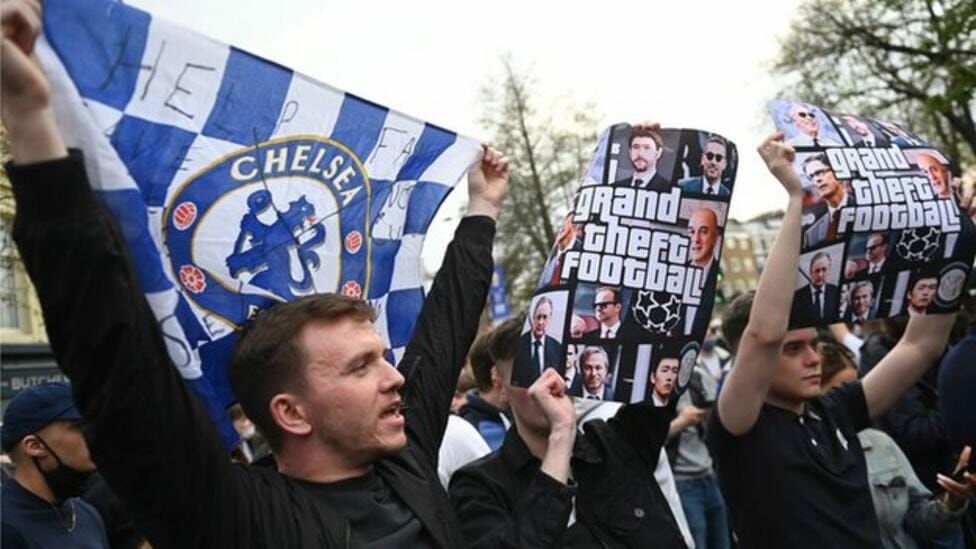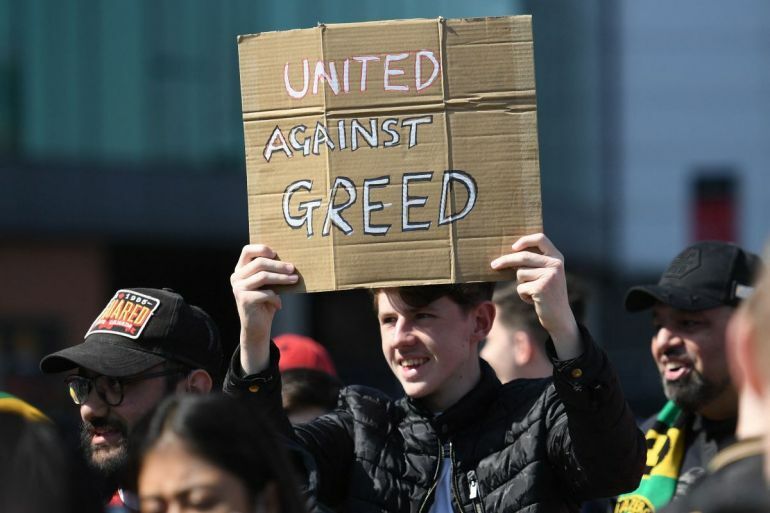European Super League a ‘wolf in granny’s clothing’

The sports development company trying to resurrect the European Super League (ESL) has been accused of being a “wolf in granny’s clothing.”
European sports development company, A22 Sports Management, is trying very hard to summon a phoenix from the ashes of the ESL after the original 12-club proposal in 2021 crashed and burned after European-wide protests against it.
In an effort to rebrand the tainted product, A22 chief executive Bernd Reichart insists, in what appears to be a desperate plea, that a new version of the contaminated ESL would be a competition with no permanent members and based on sporting performance.
Reichart told German newspaper Die Welt…
“The foundations of European football are in danger of collapsing. It’s time for a change. It is the clubs that bear the entrepreneurial risk in football.
“But when important decisions are at stake, they are too often forced to sit idly by on the sidelines as the sporting and financial foundations crumble around them.”
One of the protesters outside Manchester United stadium Old Trafford says the protest “isn’t just about the European Super League”, adding that the Glazer family, which has controlled the club since 2005, “need to go”.
Read more here: https://t.co/yjfNpetpic pic.twitter.com/bOLj2sRpqE
— Sky News (@SkyNews) May 2, 2021
The initial proposal for the ESL in 2021 had 20 teams, including 12 established members and three additional clubs expected to join at a later date, as well as five teams that would qualify annually based on their domestic performance. But after widespread criticism, Arsenal, Chelsea, Liverpool, Manchester City, Manchester United, and Tottenham withdrew from the project within two days.
Despite this setback, Real Madrid, Barcelona, and Juventus are still pursuing the creation of an ESL.
Reichart states that the revised ESL would consist of 60 to 80 teams, each guaranteed to play a minimum of 14 matches per season, and would continue to participate in their domestic leagues. No further details about the format have been disclosed by A22.
In December, UEFA and FIFA received strong support in their effort to prevent the establishment of a European Super League.
According to a report from the European Court of Justice, the advocate general stated that the regulations of the European and world governing bodies of football are “consistent with EU competition law.”
It was previously claimed that UEFA and FIFA were violating competition law by threatening to penalize clubs and players who joined a breakaway league.
A final decision will be made by a Grand Chamber consisting of 15 members in the spring.

Despite the ruling, A22 has been actively engaging in discussions with various stakeholders throughout Europe regarding the future of club football. The organization has also established 10 core principles, such as inclusive and merit-based competitions and support for the growth and financial stability of women’s football, which would serve as the foundation for the new ESL.
Reichart said…
“Our talks have also made it clear that clubs often find it impossible to speak out publicly against a system that uses the threat of sanctions to thwart the opposition.
“Our dialogue was open, honest, constructive and resulted in clear ideas about what changes are needed and how they could be implemented.
“There is a lot to do and we will continue our dialogue.”
Javier Tebas, the president of La Liga, has been an outspoken opponent of the ESL and has publicly slammed the latest proposals.
“The Super League is the wolf, who today disguises himself as a granny to try to fool European football. But his nose and his teeth are very big, four divisions in Europe? Of course the first for them, as in the 2019 reform. Governed by the clubs? Of course only the big ones.”
La Liga called the plans a “direct threat” to domestic leagues around the continent, citing a report by business group KPMG.

Kevin Miles, the CEO of the Football Supporters’ Association, also expressed his opposition to the new proposals for the ESL. He stated that the concept of an open competition was already being implemented in the Champions League.
“The walking corpse that is the European Super League twitches again with all the self-awareness one associate with a zombie.
“They say ‘dialogue with fans and independent fan groups is essential,’ yet the European Zombie League marches on – wilfully ignorant to the contempt supporters across the continent have for it.”
The European Club Association (ECA), led by its chairman Nasser Al-Khelaifi, president of Paris St-Germain, accused A22 of operating in an “alternative reality.” The ECA went on to say that “in the real world, this recycled proposal has already been brought up, discussed, and thoroughly rejected by all relevant parties in 2019.”
The organization emphasized its ongoing opposition to the ESL and any similar breakaway project, while also highlighting the advancements being made “with all stakeholders in football working towards the betterment of the entire European football landscape.”
Last year, UEFA approved changes to the Champions League meaning the number of teams in the group stage will rise from 32 to 36 in the 2024-25 competition.
UEFA said…
“Similar format changes will also be applied to the Europa League (eight matches in the league stage) and Europa Conference League (six matches in the league stage) and both will also include 36 teams in the league phase.
“From 2024 more clubs from more countries will participate in European men’s club competitions every season, growing the passion of European football and greatly increasing the amount of revenue being shared.
“Significant progress can be seen across other aspects of the game from women’s football, youth and academy development, finance and regulation to sustainability and social impact.
“This is what real change looks like. We have moved on, when will A22?”

Latest Thailand News
Follow The Thaiger on Google News:


























